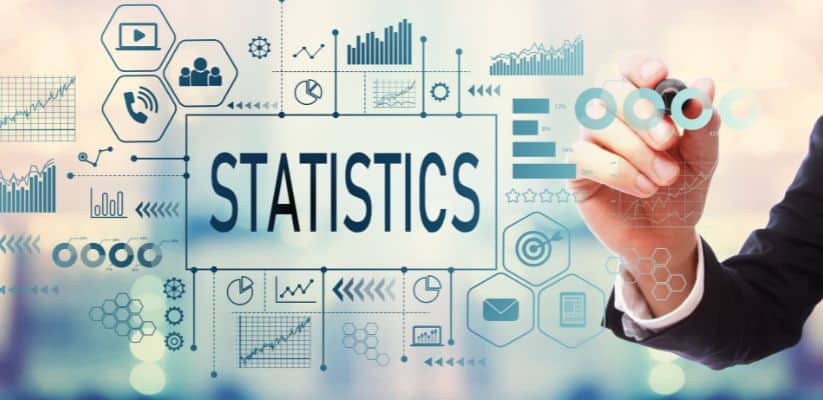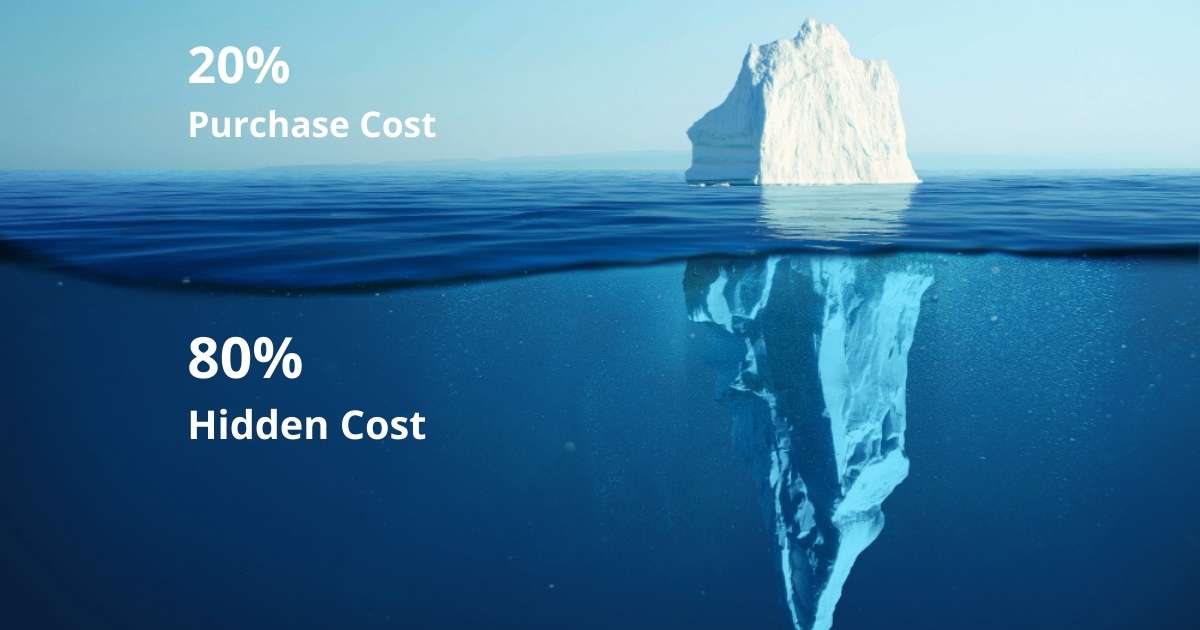ERP software is used by enterprises to simplify and streamline their operations. With the right one, businesses can automate many of their operations and get a better understanding of their operations by tracking meaningful data.
21 ERP Software Statistics That Every Business Should Know –
- More than 70% of large enterprises use ERP software. It is the topmost ERP software statistics.
- It is estimated that the global ERP market will reach $74.2 billion by 2023.
- Over 53% of organizations have seen a positive ROI from their ERP implementation.
- Sixty-four percent of ERP implementations take more than six months to complete.
- On average, ERP implementation costs range from $150,000 to $750,000.
- As per the recent ERP software statistics, cloud-based ERP solutions are being adopted by 41% of organizations.
- Over 85% of companies are making investment in digital transformation initiatives.
- Fifty-seven percent of businesses believe ERP software will help them become more agile.
- In the manufacturing industry, ERP systems are used to manage 43% of the data.
- Fifty-four percent of organizations are using ERP to improve reporting and analytics.
- Forty-two percent of companies have adopted ERP system to support their supply chain operations.
- Forty-one percent of organizations have integrated ERP software with their customer relationship management systems.
- Thirty-nine percent of businesses are using ERP to improve their customer service.
- Thirty-six percent of organizations have integrated ERP systems with human resources applications.
- Thirty-two percent of businesses are using ERP system to manage inventory.
- Thirty-one percent of businesses are using ERP to manage their finances.
- Twenty-eight percent of businesses are using ERP software to manage their production processes.
- Twenty-six percent of organizations are using ERP application to manage their marketing activities.
- Twenty-four percent of companies are using ERP software to manage their sales operations.
- Seventeen percent of businesses are using ERP to manage their R&D operations.
- Eleven percent of companies are using ERP to manage their e-commerce activities.
Also Read : Is AI Shaping the Future of ERP Software
How ERP is Beneficial for Your Business?
ERP software is beneficial for businesses because it allows for the automation of many business processes. This can lead to increased efficiency and productivity within the company. Additionally, it can help businesses to better track and manage their finances.
Below mentioned are the top benefits of the business –
Increased Accuracy
With the rise of technology, companies have been able to collect and analyze data at a much faster rate. This has led to increased accuracy in decision making, as well as better customer service. For example, a company can now track how many times a customer visits its website, what products they are interested in, and what pages they spend the most time on. This data can then be used to create targeted marketing campaigns and improve the website’s design.
As another example surveyed by ERP software statistics, many companies are now using artificial intelligence to predict customer needs and preferences. This allows them to provide a more personalized experience that is tailored to each individual customer.
Improved Communication
Since the implementation of the improved communication system, the company has seen a drastic reduction in the number of complaints filed by employees. The new system has made it easier for employees to communicate with one another, and to report any issues or concerns they may have. This has resulted in a more productive and efficient workplace, with employees feeling more valued and heard.
Also Read: Three Ways ERP Software Supports Change Management
Increased Productivity
Since the installation of the new software, the team’s productivity has increased by 25%. Manager Alex attributes this to the new software’s ability to automate tasks that were once done manually. The team is now able to work faster and more efficiently, resulting in a significant increase in overall productivity.
Enhanced Customer Service
In order to provide enhanced customer service, it is important to first understand what customers want. In a recent survey, customers indicated that they want companies to provide more personalized service. They also want companies to be more responsive to their needs and to be more transparent in their operations. In order to provide enhanced customer service, companies need to focus on developing a customer-centric culture and on implementing technologies that can help them better understand and serve their customers.
Improved Decision Making
A well-informed decision is more likely to be a good decision. In order to improve our decision making, we need to be aware of our own cognitive biases and the factors that can influence our decision making. We also need to be able to gather and process information effectively. Finally, we need to be able to evaluate our options and make a choice that is best for us.
Reduced Costs
ERP systems can help businesses reduce costs by automating business processes and by providing them with accurate information about their business. This information can help businesses make better decisions about where to allocate their resources.
Improved Customer Service
ERP systems can help businesses improve customer service by providing them with information about customer orders and preferences. This information can be used to personalize customer service and improve the customer experience.
Also Read: Recipe Management in Food and Beverage Industry with ERP Software
The Future of ERP
The future of ERP software looks very promising as more and more businesses are adopting this technology. Companies can now easily access their information from any device, anytime and from anywhere. The integration of different software within a single system will also increase the efficiency of an organization. Furthermore, businesses will be able to access up to date information and make better decisions.
In the future, ERP software will continue to evolve as businesses seek to optimize their operations. Companies will have access to more features and capabilities, such as predictive analytics, machine learning, and artificial intelligence. ERP software will also be able to integrate with other systems, such as enterprise mobility and Internet of Things (IoT).
So, its future is clearly bright, and businesses should take advantage of this technology to optimize their operations. With the help of ERP software, businesses can save time, money, and resources and improve their efficiency.
Sage Software Solutions is a leading IT company with an array of advanced ERP Software solutions. Our proprietary products — Sage X3 and Sage 300, will help you cut operational expenses, improve business productivity, increase operational efficiency, forge robust customer relationships, and strengthen associations with vendors, suppliers, and distributors. So, if you are looking to reinforce your business fundamentals and emerge as an industry leader, then please schedule a call with one of our sales representatives.





